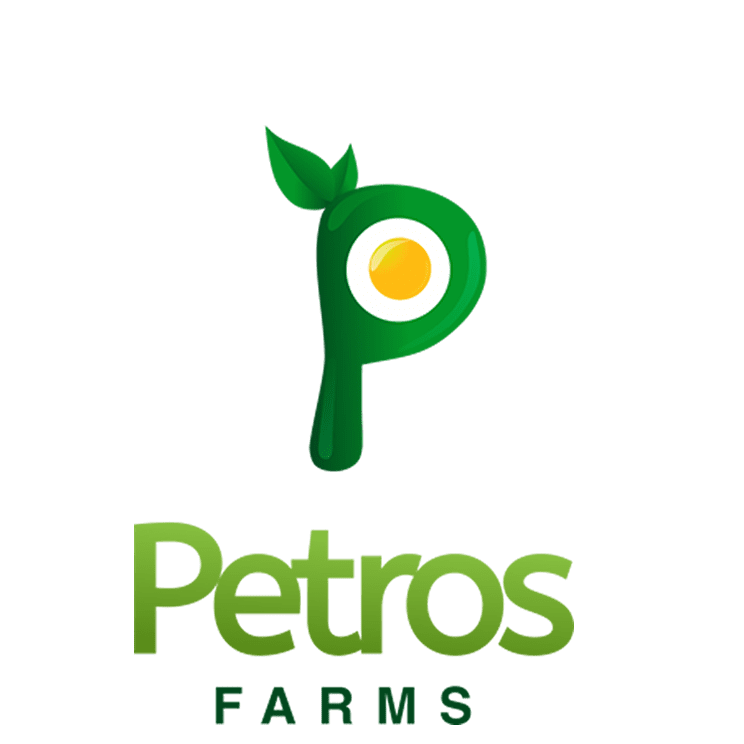27 May The Ultimate Challenge of Poultry Farm Management While Abroad
Introduction:
Is your poultry farm bleeding money every month, inching closer to collapse due to mismanagement?
Are you struggling to oversee your operations from abroad, risking the fate of your investment?
If you’re in the diaspora and contemplating starting a poultry farm in Africa, why risk it without consulting someone who’s already done it seamlessly?
Effective poultry farm management is crucial. Take action like the owner of GreenValley Poultry Farm before it’s too late.
Case Study: GreenValley Poultry Farm
GreenValley Poultry Farm began operations two years ago, boasting a capacity of 12,000 layers and 50,000 catfish. With hard work and sleepless nights, the owner took the bold step of investing in Nigeria while living abroad. However, beneath this investment lay dwindling productivity, shattered dreams, and tears of hopelessness.
But as luck would have it, the owner of GreenValley Poultry Farm found Petros Farms online and made the call. Renowned for our operational excellence despite being managed by the owner who lives in the diaspora, Petros Farms was tasked with the monumental challenge of resurrecting GreenValley Poultry Farm from the depths of collapse. Embarking on a journey of discovering why the farm was collapsing, Petros Farms uncovered the root causes of GreenValley Poultry Farm’s decline.
Rule 1: Learn Poultry Farming
Do not rush to operate the poultry farm business without proper understanding of both the specific livestock management you are going into and the business side of it. The idea that you will just employ professionals, so you don’t need to understand the management is the beginning of the death of your poultry investment. Remember, it is a delicate business as you are dealing with living birds.
For example, if you do not get the training about how to breed day-old chicks, it can prove costly for your poultry farm business. Your entire lot of chicks may die if you just do not know what you need to manage these chicks. So, learn all those farming basics to operate your chicken business successfully.
Are you planning to start with egg production? Then begin your business by buying point-of-lay hens. Do not start your poultry egg production business by buying and rearing day-old chicks except if that is the only option in your country. For instance, we consulted for a client who wanted to establish a poultry farm in Côte d’Ivoire. Buying and rearing day-old chicks was the only option there.
What we found at GreenValley Poultry Farm was a narrative rife with mismanagement and neglect: irregular feeding patterns, substandard housing conditions, and a lack of professional oversight—all stemming from a lack of adequate knowledge. Therefore, as an entrepreneur or business owner, take a poultry training course, watch multiple YouTube videos, or—this is the most important—consult with individuals in the diaspora who have successfully established and managed poultry businesses in Africa.

Rule 2: Choose a Specific Poultry Sector
Poultry farming encompasses various niches, including:
- Meat production (Broilers breeding)
- Egg production (Layers breeding)
- Poultry feed production
- Chicken breeding (Hatchery)
Within the African poultry industry, two main sectors stand out: broilers and layers. Typically, poultry farming businesses operate across multiple sectors. However, as a beginner managing your farm remotely, it’s advisable to focus on a single sector initially. Avoid the mistake made by GreenValley Poultry Farm of venturing into multiple livestock businesses, such as poultry and fishery farming, without establishing sustainability in one sector first.
Operating remotely adds another layer of complexity, emphasizing the importance of ensuring consistent sales. When considering which sector to focus on, weigh the risks and potential sales assurance. For instance, while broiler meat may have high demand, securing off-taker contracts is crucial to mitigate the risk of unsold inventory. Poultry layer farming, on the other hand, offers more predictable sales due to the consistent demand for eggs. Even with an egg glut, your eggs can still last for up to two weeks. Unlike broilers, keeping them beyond six weeks eats into your profit. You have to slaughter, process, and package as frozen chicken. These steps add layers of complexity that you don’t need as a beginner living abroad.
Given the need for a remote management setup, poultry layer egg farming emerges as a more manageable and reliable option. With a guaranteed market for eggs and stability of the product for roughly two weeks, you can establish a steady revenue stream while minimizing operational complexities.
Rule 3: Know How to Feed Your Chickens
Understanding how to feed your layer chickens properly is critical. Seventy percent of your production expenditure will be on purchasing poultry feed. Therefore, it’s crucial to buy quality feed from a trusted company. Cheap feed will cripple your business. But wait—before you spend 70% of your revenue on quality feed, here’s an interesting fact that many poultry farmers overlook: the right feeding technique is more critical than the quality of the feed itself. Even the most expensive poultry feed won’t yield desired results if the feeding technique is poor.
GreenValley Poultry Farm faced challenges in egg production, with rates falling below 50% when they should have been above 80%, all due to improper feeding techniques. Here are some of the common mistakes in poultry farming they made:
- They fed their layer hens only once a day—contrary to the recommended feeding frequency.
- They failed to feed their layers at the same time every day, disrupting their feeding schedule.
- They didn’t adhere to the recommended feeding ratio, neglecting to provide 40% of the feed in the morning and 60% in the evening.
- They didn’t follow the recommended quantity of feed per hen per day.
As a beginner managing your poultry operations remotely, avoid attempting to produce your own feed in the first year of operations. Instead, focus on purchasing quality, commercially available chicken feed. While it’s beneficial to learn how to prepare feeds as your business progresses, mastering the technique takes time and experimentation.

Rule 4: Let Systems Run the Business
As Michael Gerber wisely said, “Let systems run the business and people run the systems.” This principle underscores the importance of effective systems in the operations of any successful and profitable business, including poultry farming. Effective systems are the most important blocks in building and managing a poultry farming business while abroad. These systems cover every aspect of your poultry operations. Without a system in place, you might as well say goodbye to your investment.
At Petros Farms, no one does anything that isn’t in the Petros Farms – 27 Protocols. If a deviation from the protocol is necessary, it is documented and discussed in meetings. These protocols cover all aspects of layer farming from 16 weeks until 100 weeks of age. To ensure these protocols can easily be followed by any employee from day one, we created a calendar of protocols. This allows you to know what is happening any day of the month. Besides these 27 protocols, we have systems for tracking bodyweight, tracking production, and inventory systems to verify the quantity of eggs produced and delivered to the egg warehouse. Below are all the systems we have in place:
- Petros Farms – Bodyweight management template
- Petros Farms – Poultry managerial daily record template
- Petros Farms – Poultry Egg production and Sales Inventory Template
- Petros Farms – Poultry Management Dashboard
- Petros Farms – Poultry Veterinary record template
- Petros Farms – Poultry Sales Egg Tracker
- Petros Farms – Poultry Sales Manure and Feed Sacks tracker
- Petros Farms – Petros Telephone records tracker
- Petros Farms – Visitors registration tracker
- Petros Farms – Activities Calendar
- Petros Farms – Protocols Calendar
- Petros Farms – 27 Protocols
Think of good systems as the “magic formula” for success in poultry farming. They not only increase productivity and efficiency but also ensure that your business consistently delivers what customers want. By implementing robust systems, you can address frustrations, eliminate waste of resources, improve performance, and overcome various business challenges.
Rule 5: Hire the Right People
One of the most critical aspects of running a successful poultry farming business, especially when managing it remotely, is assembling the right team. Your employees are the backbone of your operations, and hiring the right individuals can make all the difference between success and failure. When it comes to hiring staff for your poultry farm in Africa, it’s essential not to outsource the process entirely to an agency. Even if you decide to enlist the help of an agency, be actively involved in the interview and review of applications and CVs. What you, as an entrepreneur or business owner, prefer or like may be different from what the agency prioritizes.
As the owner of Petros Farms, I personally interviewed more than 100 applicants. We prioritize hiring for attitude and then train them for the specific skills we need. By being directly involved in the hiring process, you can ensure that candidates align with your farm’s values, culture, and vision. When evaluating potential candidates, look beyond just technical skills and qualifications. Consider factors such as work ethic, communication skills, and compatibility with your team and farm environment. Remember, attitude and cultural fit can often outweigh specific job-related expertise.
Conclusion
By following these five tips for managing a poultry farm and learning from the mistakes made by GreenValley Poultry Farm, you can set your poultry farming business on a path to success, even while managing it from abroad. Effective poultry farm management is essential to avoid the pitfalls of mismanagement and ensure a sustainable and profitable operation. The African poultry industry offers immense opportunities, but only those equipped with the right knowledge and strategies.
Top 5 Key Takeaways
- Proper training and understanding of poultry farming are essential for successful operations.
- Focusing on a single poultry sector initially is crucial for beginners managing farms remotely.
- Correct feeding techniques are more critical than the quality of the feed itself.
- Implementing effective systems and protocols is vital for managing a poultry farm efficiently from abroad.
- Hiring the right people with the right attitude is key to the success of a poultry farm.
Cheers.
Petros Farms
Share with:
